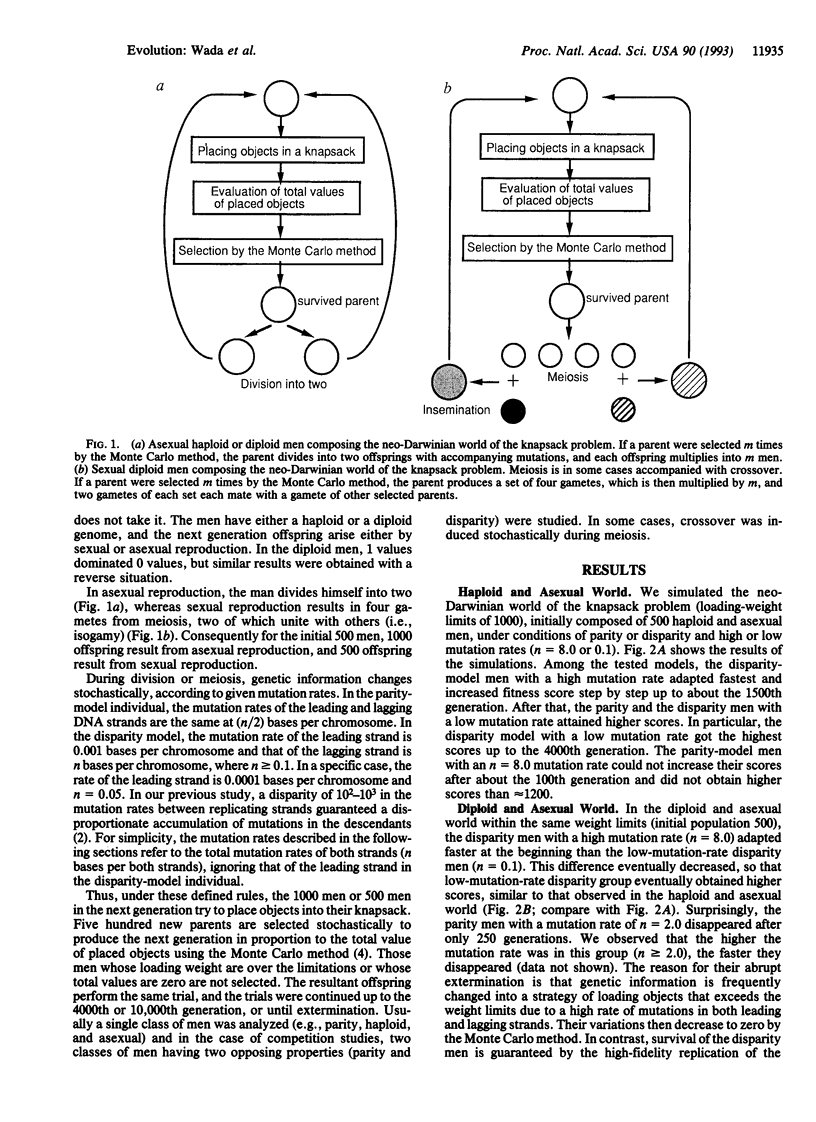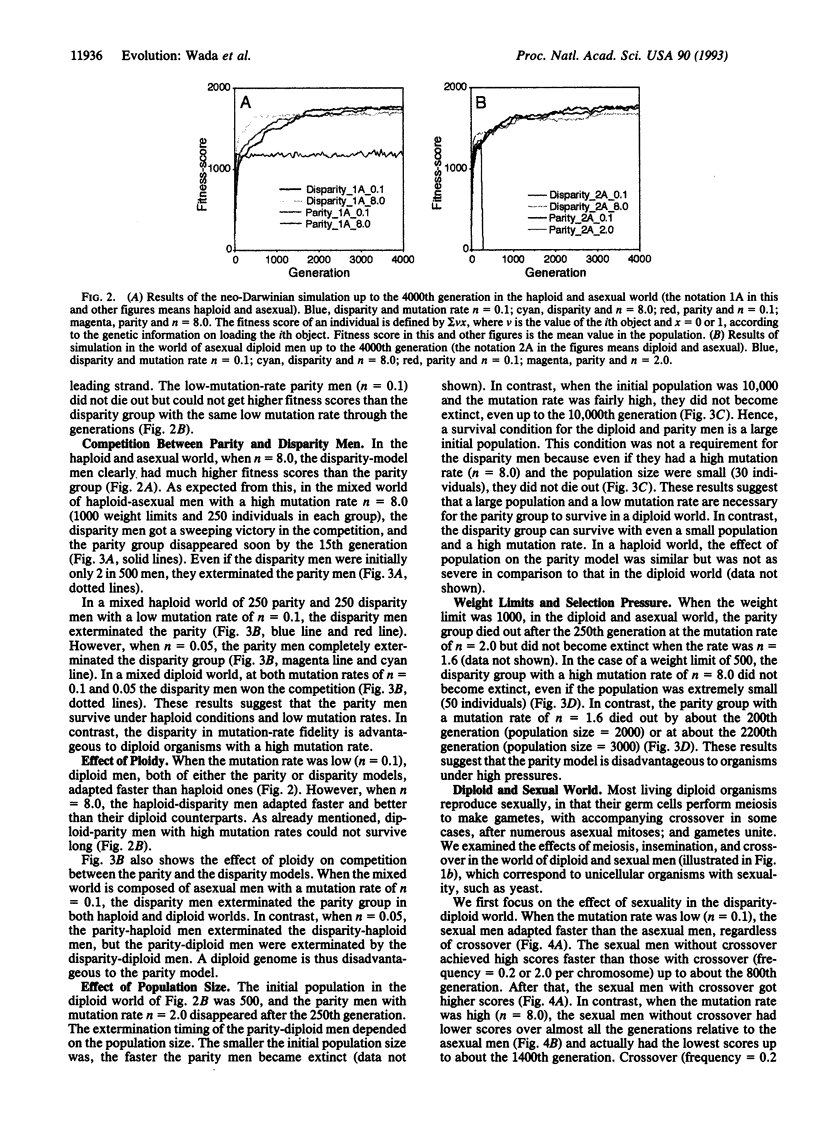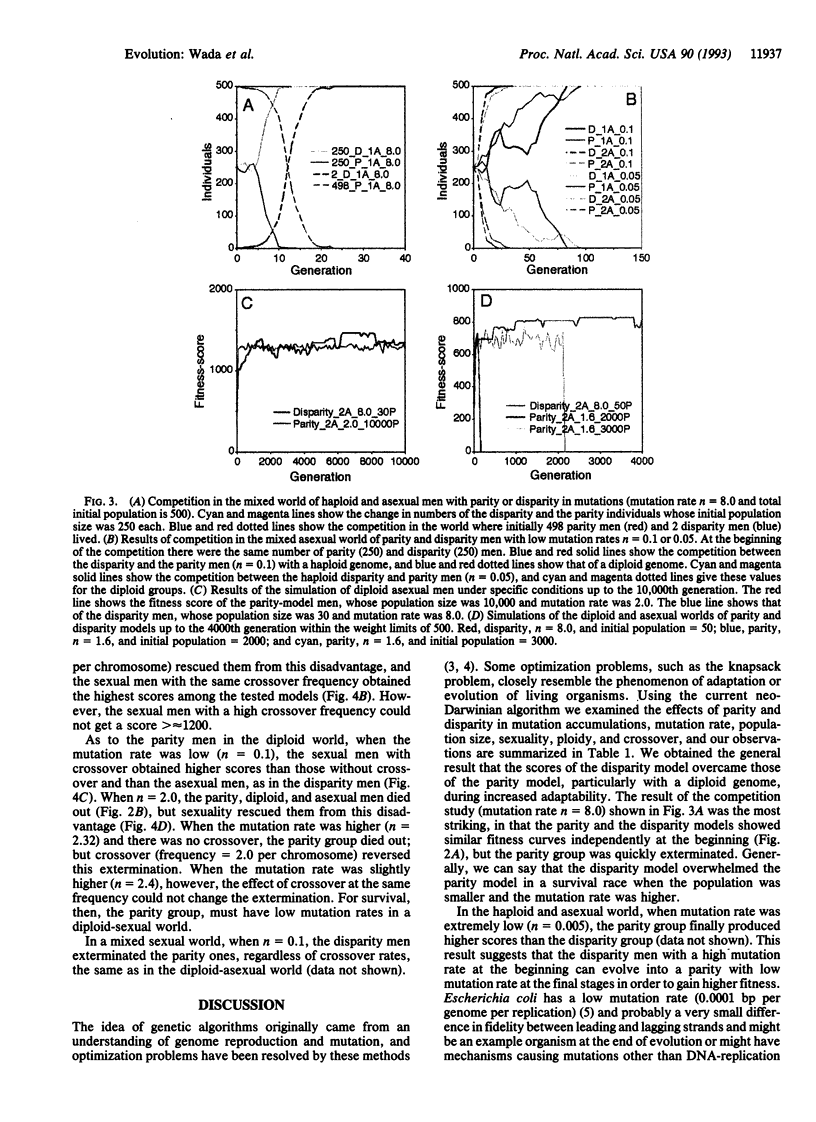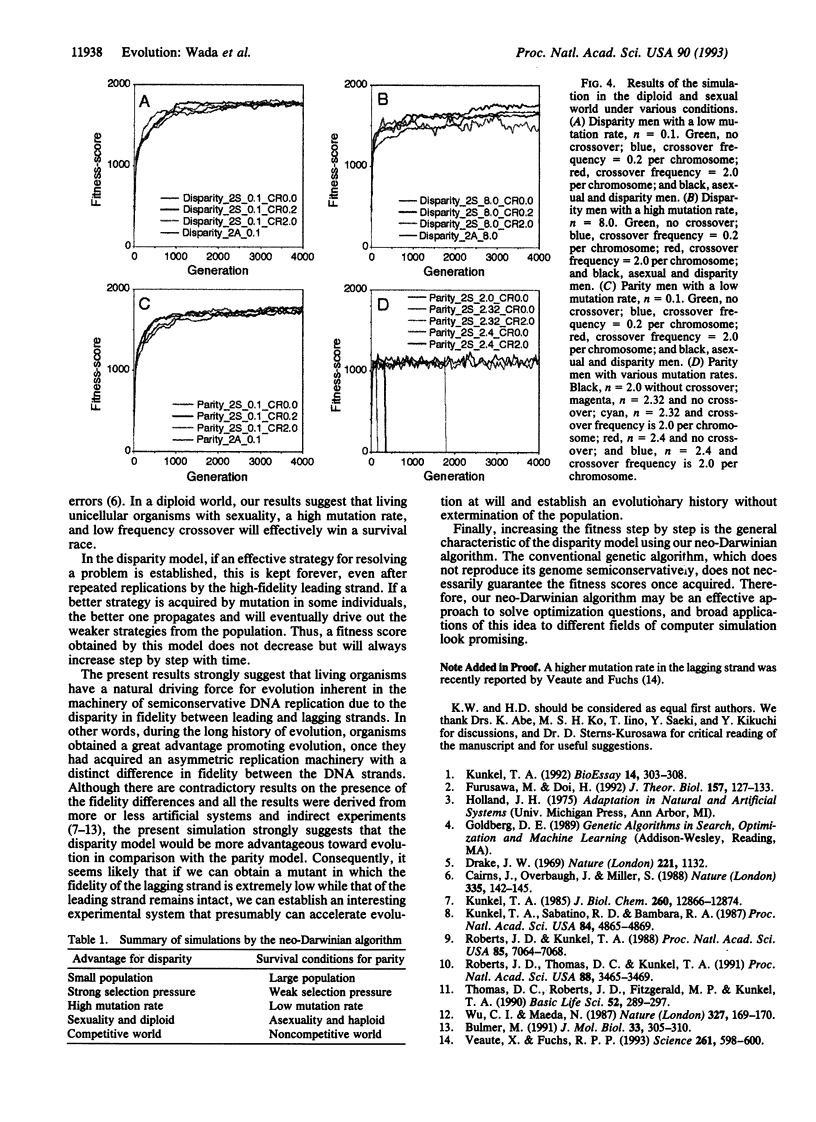Abstract
Evolution is, in a sense, to resolve optimization problems. Our neo-Darwinian algorithm based on the mechanics of inheritance and natural selection uses double-stranded DNA-type genetic information to resolve the "knap-sack problem." The algorithm with asymmetrical mutations due to semiconservative DNA-type replication most effectively resolved the problem. Our results strongly suggest that disparity in mutations caused by the asymmetric machinery of DNA replication promotes evolution, in particular of diploid organisms with a high mutation rate, in a small population, and under strong selection pressure.
Full text
PDF




Images in this article
Selected References
These references are in PubMed. This may not be the complete list of references from this article.
- Bulmer M. Strand symmetry of mutation rates in the beta-globin region. J Mol Evol. 1991 Oct;33(4):305–310. doi: 10.1007/BF02102861. [DOI] [PubMed] [Google Scholar]
- Cairns J., Overbaugh J., Miller S. The origin of mutants. Nature. 1988 Sep 8;335(6186):142–145. doi: 10.1038/335142a0. [DOI] [PubMed] [Google Scholar]
- Drake J. W. Comparative rates of spontaneous mutation. Nature. 1969 Mar 22;221(5186):1132–1132. doi: 10.1038/2211132a0. [DOI] [PubMed] [Google Scholar]
- Furusawa M., Doi H. Promotion of evolution: disparity in the frequency of strand-specific misreading between the lagging and leading DNA strands enhances disproportionate accumulation of mutations. J Theor Biol. 1992 Jul 7;157(1):127–133. doi: 10.1016/s0022-5193(05)80761-1. [DOI] [PubMed] [Google Scholar]
- Kunkel T. A. Biological asymmetries and the fidelity of eukaryotic DNA replication. Bioessays. 1992 May;14(5):303–308. doi: 10.1002/bies.950140503. [DOI] [PubMed] [Google Scholar]
- Kunkel T. A., Sabatino R. D., Bambara R. A. Exonucleolytic proofreading by calf thymus DNA polymerase delta. Proc Natl Acad Sci U S A. 1987 Jul;84(14):4865–4869. doi: 10.1073/pnas.84.14.4865. [DOI] [PMC free article] [PubMed] [Google Scholar]
- Kunkel T. A. The mutational specificity of DNA polymerases-alpha and -gamma during in vitro DNA synthesis. J Biol Chem. 1985 Oct 15;260(23):12866–12874. [PubMed] [Google Scholar]
- Roberts J. D., Kunkel T. A. Fidelity of a human cell DNA replication complex. Proc Natl Acad Sci U S A. 1988 Oct;85(19):7064–7068. doi: 10.1073/pnas.85.19.7064. [DOI] [PMC free article] [PubMed] [Google Scholar]
- Roberts J. D., Thomas D. C., Kunkel T. A. Exonucleolytic proofreading of leading and lagging strand DNA replication errors. Proc Natl Acad Sci U S A. 1991 Apr 15;88(8):3465–3469. doi: 10.1073/pnas.88.8.3465. [DOI] [PMC free article] [PubMed] [Google Scholar]
- Thomas D. C., Roberts J. D., Fitzgerald M. P., Kunkel T. A. Fidelity of animal cell DNA polymerases alpha and delta and of a human DNA replication complex. Basic Life Sci. 1990;52:289–297. doi: 10.1007/978-1-4615-9561-8_24. [DOI] [PubMed] [Google Scholar]
- Veaute X., Fuchs R. P. Greater susceptibility to mutations in lagging strand of DNA replication in Escherichia coli than in leading strand. Science. 1993 Jul 30;261(5121):598–600. doi: 10.1126/science.8342022. [DOI] [PubMed] [Google Scholar]
- Wu C. I., Maeda N. Inequality in mutation rates of the two strands of DNA. Nature. 1987 May 14;327(6118):169–170. doi: 10.1038/327169a0. [DOI] [PubMed] [Google Scholar]





